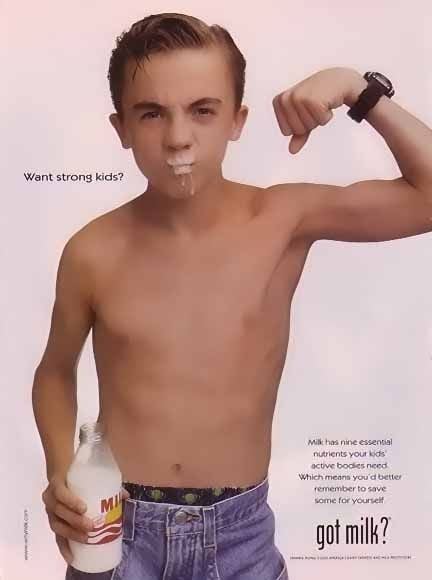There is so much information about nutrition out there that it’s hard to know what to listen to! We hear conflicting information each day, from news sources, friends and family, and your personal trainer. What do we listen to? Who is right?
The answer is a little more complicated. What you should be eating depends on your goals. It depends on your lifestyle, your activity level, your age and gender. Even eating foods that are “good for you” can mislead you, because “good for you” doesn’t always mean “good for your goals”. Healthy foods do not always promote weight loss, although we tend to think of them as one in the same.
Healthy foods are ones that are nutrient dense, help provide energy, or are simply “better” than other choices. If you’re comparing it to a frosting glazed doughnut, muffins are “healthy”, but we would probably agree that a muffin is not the best option to support your weight loss. But what about a flax covered muffin with apples and whole grains? This is already getting more confusing.

It’s this complicated, misleading, lingo that gets us in trouble, and can make losing weight even harder.
Let’s highlight some of the most common “healthy” foods that could be derailing your weight loss:
1. Milk
 We’ve all heard of “got milk”, one of the most successful food advertising campaigns in history. But it’s just that—an advertising campaign. The Dairy Producer Groups allotted a $23 million/year marketing budget to this campaign, and it shows. When you look closer at the nutrition of milk, it can make you wonder if it is really a “healthy” option. Milk has 12g of sugar per 8oz cup—that’s ½ of a candy bar! Low fat milk receives artificial coloring agents because after processing out the milk fats, it looks blue. And vegetables like broccoli contain more absorbable calcium than a glass of milk. If you’re trying to lose weight, drink water, and if you’re trying to build strong bones, eat your veggies.
We’ve all heard of “got milk”, one of the most successful food advertising campaigns in history. But it’s just that—an advertising campaign. The Dairy Producer Groups allotted a $23 million/year marketing budget to this campaign, and it shows. When you look closer at the nutrition of milk, it can make you wonder if it is really a “healthy” option. Milk has 12g of sugar per 8oz cup—that’s ½ of a candy bar! Low fat milk receives artificial coloring agents because after processing out the milk fats, it looks blue. And vegetables like broccoli contain more absorbable calcium than a glass of milk. If you’re trying to lose weight, drink water, and if you’re trying to build strong bones, eat your veggies.
2. Whole Grains
We know that whole Grain options are a more nutrient dense than their white counterpart. We know about the fiber, and the minerals, and the vitamins. But, whole grains are not necessarily supportive of weight loss. Yes, whole grains nutrients, but they also have just as many carbohydrates (sometimes more!) than their white counterparts. If we’re talking about healthy, nutrient dense foods, vegetables will provide much more fiber, minerals, and vitamins. Sometimes we just want bread, but if you’re eating whole grain bread to lose weight, you’ll be better off switching to a lettuce wrap instead.
3. Brown Rice
Just like whole grains, brown rice is more nutrient dense than white rice, but contains the same number of carbohydrates. When your body processes rice, the amount of sugar that it produces in the body is the same, regardless of whether it is brown or white. We see a lot of people choke down dry brown rice to nourish their body. But, if you’re looking for a nutrient dense food that supports weight loss, eating cauliflower or broccoli rice is a much better option.
4. Yogurt
The dairy craze continues with yogurt, and there really are some healthy varieties of yogurt. This probiotic and calcium rich food can support a healthy meal. However, most yogurts are full of sugar and artificial flavors. The “best” options are high fat, unflavored, Greek yogurts – just be wary of the sweet and tempting flavored options.
5. Quinoa
Quinoa is a nutrient rich grain. It’s high in protein, and has numerous nutrients and minerals that are important for optimal health. However, there are 39g of carbohydrates in 1 cup of quinoa. For comparison, there are 45g of carbohydrates in 1 cup of rice, 37g of carbohydrates in 1 potato, and 6g of carbohydrates in 1 cup of cauliflower. The easiest ways to lose weight revolve around lowering the amount of carbohydrates consumed daily, and compared to an option like cauliflower, quinoa no longer looks like the “healthiest” option. Quinoa may be good for you, but it doesn’t always support weight loss.
6. Hummus
Hummus, another trendy “superfood”, is advertised as being high in vitamins, antioxidants, and minerals. Some sources site studies that show that hummus eaters are less likely to be obese. However studies like these can be misleading. Many of these studies do not consider the rest of the subject’s diet. For example, the hummus-eating subjects in the study linked above also ate significantly more fresh fruits and vegetables to their non-hummus-eating counterparts. How do we know whether the hummus, the fruits, or the vegetables are what caused the smaller waist?Nutritionally, hummus has 35g of carbohydrates per cup, which is much higher than many vegetable options that are just as high in vitamins, antioxidants, and minerals.
Weight loss and weight maintenance can be tricky, and the media can be misleading. If you’re struggling, it’s important to have a coach by your side who can help provide you with individualized and customized care, because we are not one-size-fits-all. We recommend the support that our Awaken180° team can provide. Check out our locations and set up a consultation today!